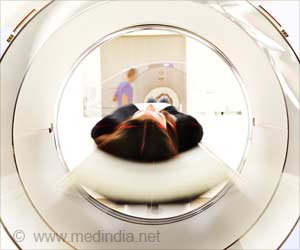An ultrasound device that could help identify arterial plaque that is at high risk of breaking off and causing heart attack or stroke has been developed.

He said that makes it difficult to assess a patient's risk and that their goal was to develop something that could effectively identify which plaques are vulnerable.
Dr. Xiaoning Jiang, an NC State associate professor of mechanical and aerospace engineering, an adjunct professor of biomedical engineering and co-author of the paper, said they developed a dual-frequency intravascular ultrasound transducer which transmits and receives acoustic signals.
He said operating on two frequencies allows them to do everything the existing intravascular ultrasound devices can do, but also makes it much easier for us to detect the contrast agents - or microbubbles - used for molecular imaging and vasa vasorum detection.
The paper has been published in the IEEE Transactions on Ultrasonics, Ferroelectrics, and Frequency Control.
Source-ANI













